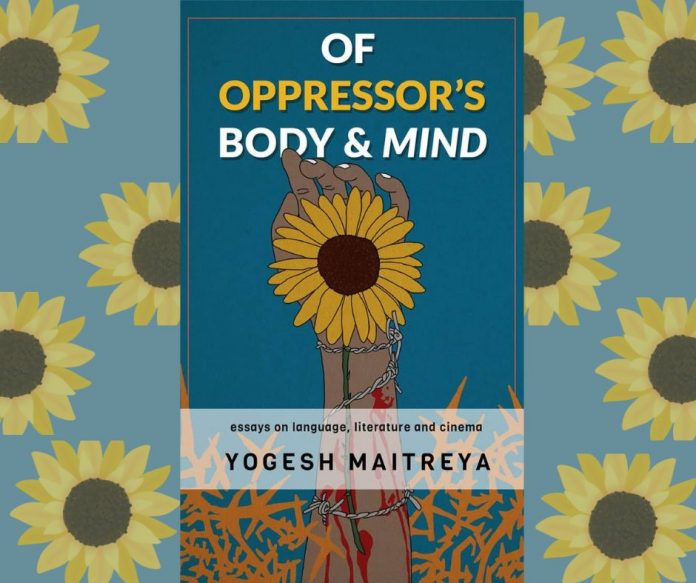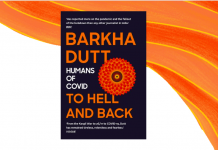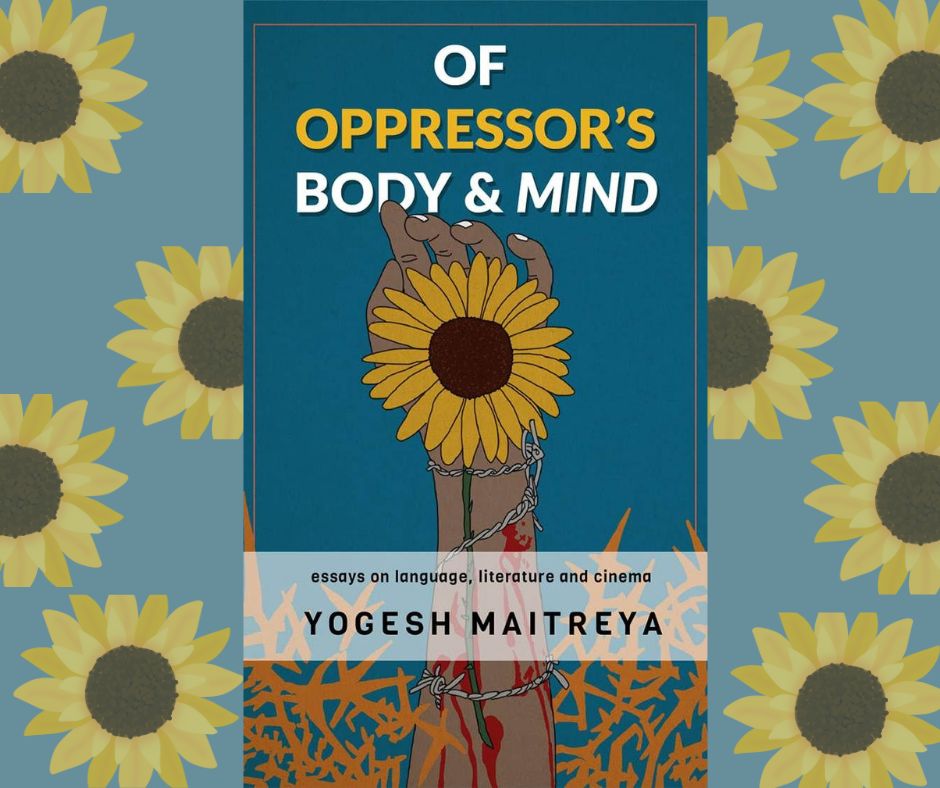Of Oppressor’s Body & Mind
by Yogesh Maitreya
Publisher: Panther’s Paw (2020)
“Caste is not about birth but about growing up adapting to it. It is about the conditioning of all sorts. Caste is not about being but becoming.”
Yogesh Maitreya in his collection of essays “Of Oppressor’s Body & Mind” masterfully examines and explains how different mediums of entertainment have invisiblized Dalit experiences and memories. The dominant narratives have always been controlled by those who had access to resources and proficiency in the English language.
Over decades, Dalit literature has managed to move away from the dominant narrative and create a space for itself to stay authentic and untainted by already-set narratives.
The metaphorical liberation of the oppressed lies in being the voice, the author, and the producer of their stories, says Yogesh Maitreya. He started the first anti-caste publishing house, Panther’s Paw, in 2016. “Of Oppressor’s Body & Mind” is a collection of essays which attempts to explore the psyche of the oppressor rather than the oppressed.
‘The question is not whether we (Dalit-Bahujans) understand English or not; the question is whether English understands us or not’, a friend once asked him. We can see this question reverberating throughout his writing. To forget is to choose to stay invisible. Language plays a crucial role in Dalit literature as it serves as a medium for expressing the unique experiences, culture, and struggles of the community. The writer also emphasizes the importance of remembering one’s history through the language of one’s community. These languages carry the emotions and nuances of Dalit experiences, enabling writers to articulate their narratives authentically. It also becomes an important tool to confront societal hierarchies and injustices.
A lot of texts from Marathi Dalit Literature reach academicians outside the country but with a savarna gauge. Hence Yogesh Maitreya presses on the need to devise an anti-caste language in the brahmanical literary world. Dalit literature as a movement at the front of translations, is led by Savarnas and Brahmins. This very fact contradicts the principle of Dalit Literature.
In one of the essays Yogesh Maitreya closely looks at the film ‘Court’ directed by Chaitanya Tamhane. In the film, he questions the positioning of Dalit Bahujan, in a Court where the Savarnas alone tend to have agency. The appropriation of Dalit Bahujan subjects and the savarna choice to control the discourse is reflected in cinema as well. In Indian Cinema the voices of the oppressed have always been mutilated and their dreams invisibilized.
Manto’s short story “Boo” is also brought under examination by Yogesh Maitreya. He points out the gap that Manto has built between himself and the sympathy that he seems to have for his characters who belong to lower castes and are introduced in shades of different tragedies. Maitreya points out how Manto’s circles only had people belonging to upper classes and hence failed to give his lower caste characters a history, culture, language or agency.
Maitreya also discusses stories like Namantar where caste is annihilated secretly and quietly in the episodes of sex between an upper-class woman and a mahar. In these moments of intimacy, caste is killed and nobody is a mahar or a savarna.
This collection of essays doesn’t focus on incidents of caste-based violence, instead, Maitreya brings to light, invisible systems that give privilege to upper castes. Privilege can lead to a warped worldview in which the oppressor believes that they are intrinsically worthy of their benefits and attribute the challenges of the community to individual shortcomings rather than institutionalized discrimination. Overcoming this mindset requires introspection, empathy and a willingness to confront and challenge one’s privilege and complicity in systems of oppression.
This collection of essays by Maitreya serves as an appeal to action for individuals to confront their privilege, dismantle oppressive structures and strive towards a more equitable and just society. By publishing Anti-caste Literature, Maitreya is trying to create an irrevocable light in the domain of darkness that the caste has nurtured in our minds.









absolutely love this review>